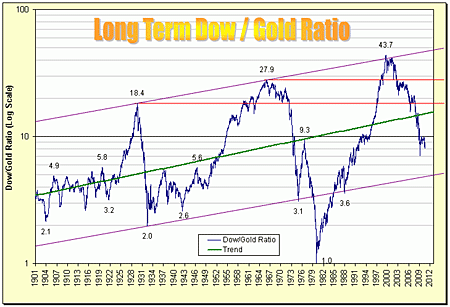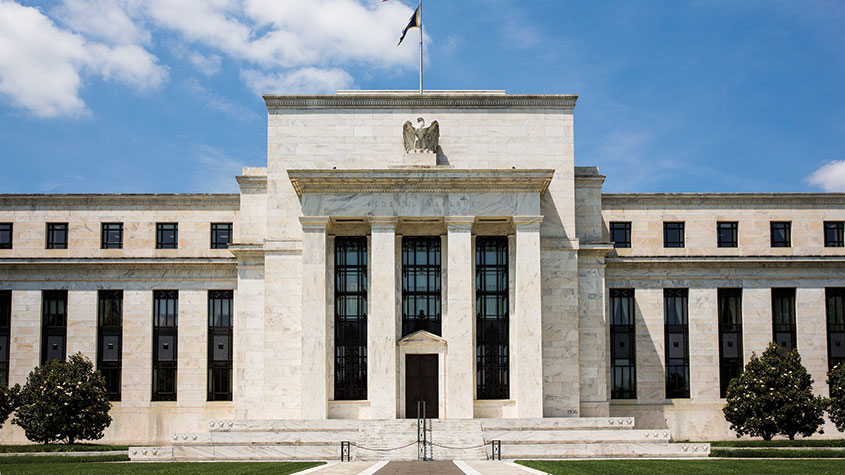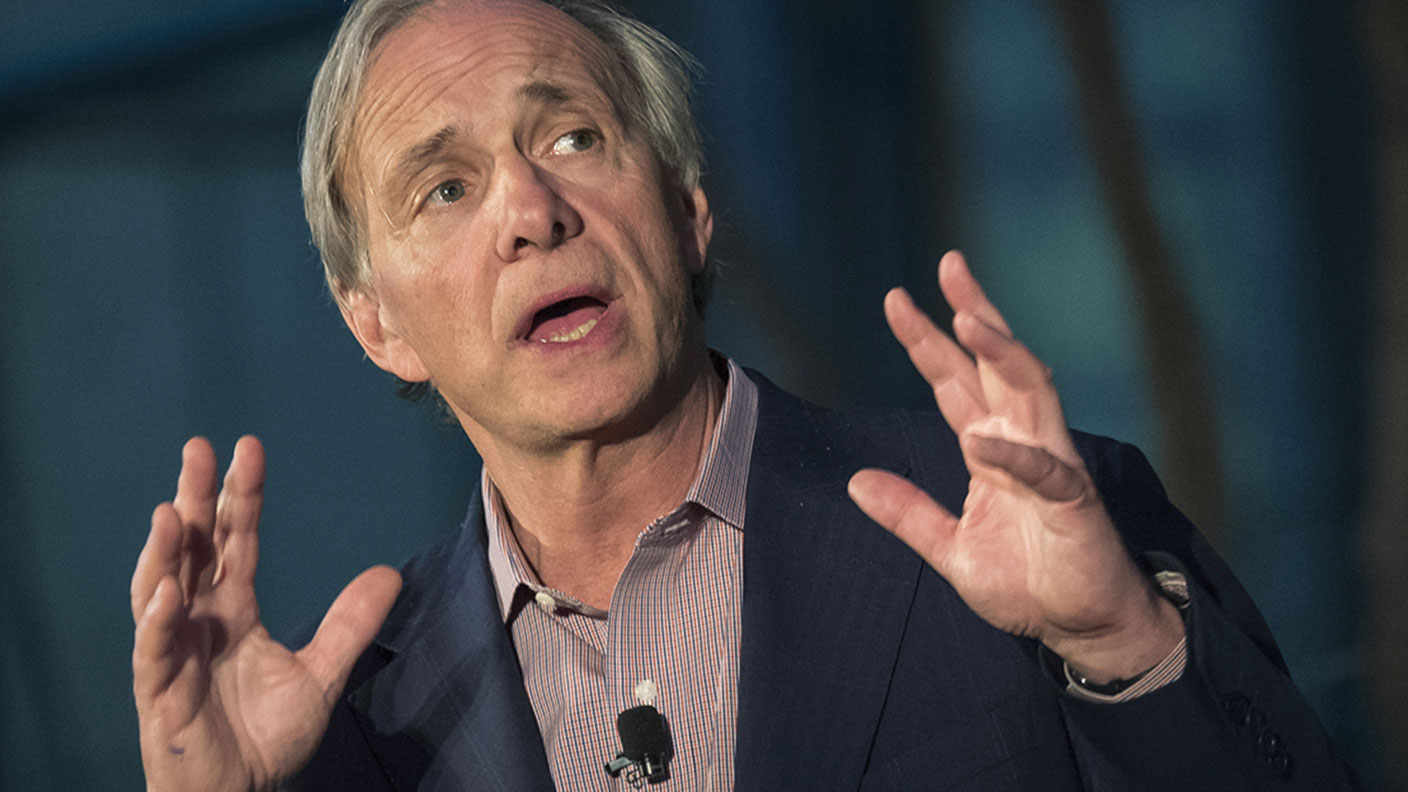How much higher can gold go?
With governments and central banks intervening in the currency and bond markets on a daily basis, it's little wonder that jittery investors are being drawn to gold - it's one of the few 'free' markets left. But how much higher can it really go? John Stepek investigates.

Get the latest financial news, insights and expert analysis from our award-winning MoneyWeek team, to help you understand what really matters when it comes to your finances.
You are now subscribed
Your newsletter sign-up was successful
Want to add more newsletters?

Twice daily
MoneyWeek
Get the latest financial news, insights and expert analysis from our award-winning MoneyWeek team, to help you understand what really matters when it comes to your finances.

Four times a week
Look After My Bills
Sign up to our free money-saving newsletter, filled with the latest news and expert advice to help you find the best tips and deals for managing your bills. Start saving today!
As I noted in our weekend round-up, the real action was in the precious metals markets last week.
Gold hit a new record high, while silver also spiked to 30-year highs. Why? Among other things, it seems that investors are still extremely jittery over the prospect of potential sovereign default in the eurozone.
While Greece was reassuring the markets that it wouldn't default, investors' actions were speaking louder than any words. It wasn't Greece they were fretting about this time, though. It was Ireland.
MoneyWeek
Subscribe to MoneyWeek today and get your first six magazine issues absolutely FREE

Sign up to Money Morning
Don't miss the latest investment and personal finances news, market analysis, plus money-saving tips with our free twice-daily newsletter
Don't miss the latest investment and personal finances news, market analysis, plus money-saving tips with our free twice-daily newsletter
A piece of research from Barclays Capital was all it took to force 'verbal intervention' from the International Monetary Fund (IMF) on Friday. It's just one obvious symptom of a deeply unhealthy market...
This is not a free market
The European Central Bank (ECB) reportedly ended up having to intervene in the bond market on Friday, after Irish bond yields spiked (in other words, investors suddenly developed an even more pronounced aversion to lending the Irish government money).
The source of the sudden spasm of fear? A Barclays Capital research note suggesting that Ireland might eventually have to get "financial assistance from the EU-IMF" if there were "unexpected losses in the financial sector".
We've come to something when a piece of analyst research is all it takes to rock confidence in a developed world sovereign bond market. Analysts churn this sort of stuff out every day. And it was hardly relentlessly damning. A healthy market could take this sort of thing on the chin.
Instead, we had the IMF rushing to deny that the country was in trouble. Or at least, any more trouble than it's already in: "we do not envision that IMF financing will be needed".
And of course, we had the ECB stepping in to the bond market to prop prices up. The Financial Times report on the purchase says that "traders said the intervention by the ECB was small in the tens of millions of euros", but that's not really the point. After all, if prices had fallen harder, we can only assume that the ECB would have upped its purchases accordingly.
Special FREE report from MoneyWeek magazine: Don't be fooled - house prices will fall again!
- Why UK property prices are set to collapse by 30%
- When it will be time to get back in and buy up dirt cheap property
The point is, it's not a free market. Whether or not you think that's a bad thing (I think it's bad, but lots of people seem to be quite happy for governments to be embedding themselves in the markets) is neither here nor there. What is for sure, is that you can't take a view on these markets without trying to incorporate what central banks might do next. That political dimension has always existed. But now it takes precedence over any economic considerations, which makes 'investing' a gamble.
As anonymous blogger 'Tyler Durden' puts it on the Zero Hedge website, we know that central banks are openly piling into currency and bond markets every day. Maybe it's only a matter of time before we find them doing the same to equity markets. Markets "have now become merely a venue for global central banks to conduct domestic policy, and have lost all traditional capital formation and forward looking properties."
Why gold is hard for governments to manipulate
This is why people are buying gold. The great thing about gold is that it's a pretty hard market for governments to manipulate. Before I get a flood of angry comments from those who believe the market is being suppressed, let me explain.
Governments want most asset prices to stay high. If you want the price of things like houses and bank debt and government debt to stay high, then there's an easy solution print money and buy them. It's not very healthy in the long run, but if you're not too worried about that, then it's easy to prop prices up.
Trouble is, governments don't want high gold prices. They'd rather the gold price stayed low. A high gold price is a clear warning that paper currencies which are ultimately just government-backed promises are losing their value.
But suppressing the gold price clearly isn't easy to do, as the past ten years demonstrate. Even if there is a grand cartel trying to keep the yellow metal down, they're not doing a very good job of it.
When Gordon Brown flogged off Britain's gold roughly ten years ago, the price hit a bottom. But now, with gold roughly five times as expensive, if Britain decided to sell the rest, I suspect we'd have a queue of willing buyers.
The fact is, the only way for central bankers to bring the gold bull market to an end, is the honest way. They have to raise interest rates above the rate of inflation, and restore the value of their paper currencies. People have to be convinced once again that paper currencies offer a better return on their savings than gold does.
Call me cynical, but I can't see this happening any time in the near future.
How high can gold go?
So how high could gold go? I'm not going to talk about where it's going to be next week or next month I'll leave that to my colleague Dominic Frisby. And when any asset class hits fresh highs, you've always got to be aware of the potential for a correction. But Tim Price, who writes our Price Report newsletter, last week put out an interesting piece about the Dow Jones / gold price ratio. Take a look at the chart below, which shows the value of the Dow Jones index divided by the gold price.

As you can see, says Tim: "At the bottom of previous equity bear markets / gold bull markets, the Dow / gold ratio has reached 2.1 (c. 1904); 2.0 (c. 1932); 3.1 (c. 1975) and 1.0 (c. 1981). It currently sits at around 8.3. The trillion dollar question is: how low can it go?"
Tim's view is that the most likely way for the ratio to bottom out, is for "gold prices to continue to rally; equity markets to continue to fall; and both markets meet each other somewhere in the middle."
If you're looking to put a price on it, then James Ferguson (by no means a 'gold bug') told readers of his Model Investor newsletter last week that judging by the technical picture at least, "the realistic three to six month target has to be above $1,500." I have to say, that sounds a pretty punchy call to me. But the point is gold is still a 'buy' here.
Our recommended article for today
The optimist's guide to the economy
There have been a lot of things to worry about in the economy over the last few years. Most of them still give cause for concern. But should we extend our pessimism to the next ten years? Merryn Somerset Webb looks for reasons to be cheerful.
The Price Report is a regulated product issued by MoneyWeek Ltd
Get the latest financial news, insights and expert analysis from our award-winning MoneyWeek team, to help you understand what really matters when it comes to your finances.

-
 Should you buy an active ETF?
Should you buy an active ETF?ETFs are often mischaracterised as passive products, but they can be a convenient way to add active management to your portfolio
-
 Power up your pension before 5 April – easy ways to save before the tax year end
Power up your pension before 5 April – easy ways to save before the tax year endWith the end of the tax year looming, pension savers currently have a window to review and maximise what’s going into their retirement funds – we look at how
-
 How have central banks evolved in the last century – and are they still fit for purpose?
How have central banks evolved in the last century – and are they still fit for purpose?The rise to power and dominance of the central banks has been a key theme in MoneyWeek in its 25 years. Has their rule been benign?
-
 France’s government collapses – could it trigger the next euro crisis?
France’s government collapses – could it trigger the next euro crisis?Briefings France’s government has toppled after losing a vote of no-confidence, plunging the euro zone’s second-largest economy into turmoil. Is this 2012 all over again and should Europe be worried?
-
 Who will follow Sri Lanka into a debt crisis?
Who will follow Sri Lanka into a debt crisis?News Sri Lanka defaulted on its debt in May as soaring global food prices and a tourism slowdown collided with years of profligate state spending. Which countries could follow?
-
 The junk-bond bubble bursts
The junk-bond bubble burstsNews Yields in the US high-yield bond market (AKA junk bonds) have soared to more than 8% since the start of the year as prices collapse.
-
 Ray Dalio’s shrewd $10bn bet on the collapse of European stocks
Ray Dalio’s shrewd $10bn bet on the collapse of European stocksOpinion Ray Dalio’s Bridgewater hedge fund is putting its money on a collapse in European stocks. It’s likely to pay off, says Matthew Lynn.
-
 The emerging-markets debt crisis
The emerging-markets debt crisisBriefings Slowing global growth, surging inflation and rising interest rates are squeezing emerging economies harder than most. Are we on the brink of a major catastrophe?
-
 French stocks are back in fashion
French stocks are back in fashionNews France’s CAC 40 stockmarket index gained 29% in 2021, making it the world’s best performing major market.
-
 Has Italy’s economy turned the corner?
Has Italy’s economy turned the corner?News Italy’s FTSE MIB stockmarket index has returned 23% so far this year, more than double the FTSE 100’s performance over the same period.